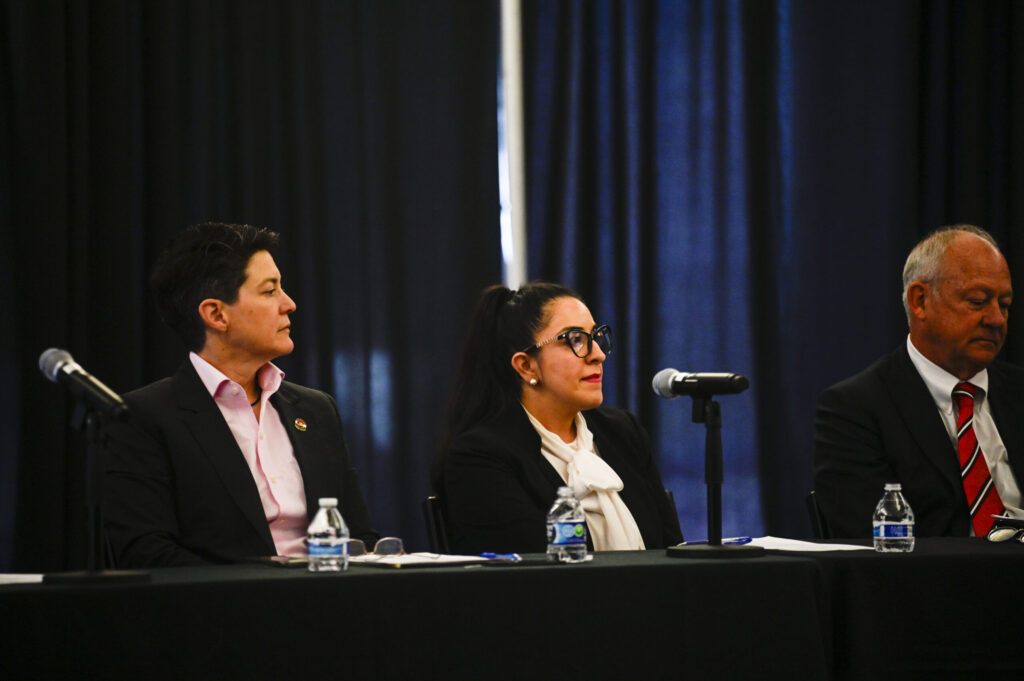Appeals court finds Mesa County judge incorrectly analyzed evidence for second time in sex assault trial
Colorado’s second-highest court concluded last month that a Mesa County judge used the incorrect standard when deciding if a defendant should receive a new trial — even after a prior Court of Appeals decision explicitly ordered the judge to fix his earlier evidence-related mistake.
A three-judge appellate panel, by 2-1, believed then-District Court Judge Richard T. Gurley mixed up the test for whether Adrian Luis Younger was entitled to a new trial for his child sex assault convictions. Instead of assessing whether there was a “reasonable probability” the trial would have ended differently if the defense had access to key evidence, Gurley seemingly applied a higher threshold that was irrelevant to the case.
Younger is serving a sentence of eight years to life after jurors convicted him in 2017 on several counts of sexually assaulting a child. Before trial, the defense sought records from the Mesa County Department of Human Services about its contacts with the victim and other witnesses. Gurley blocked the request, finding the evidence was not necessary for the case.
At trial, the defense once again asked Gurley to examine the DHS records privately and decide whether to release any to Younger’s lawyers. Gurley stood by his previous denial.
In October 2020, a different Court of Appeals panel agreed Gurley was mistaken. The defense had satisfied its burden to show the DHS records were relevant to the charges — specifically, to the credibility of the victim, whose statements about the assaults shifted throughout the case.
“If, indeed, the records contain information about Younger that has not been disclosed to him, his ability to present a defense may have been impaired by the failure of the court to review them and order their disclosure to him,” wrote then-Judge Diana Terry.
The appellate panel directed Gurley to review the DHS records, provide relevant documents to the defense, then grant Younger a new trial if there is “a reasonable probability” the result would have been different in light of the evidence.
Gurley followed the directive and disclosed 27 pages of records to the defense in 2021. Younger then filed a motion asking for a new trial, pointing to the existence of witnesses not previously interviewed, DHS contacts not investigated and suggestions of adult influence on the victim.
Gurley denied the motion. Although he did reference the correct standard for granting a new trial — a reasonable probability the outcome would have been different — Gurley also incorporated the legal standard that applies to the discovery of new evidence following a conviction. In that scenario, a defendant must show the new evidence would “probably” result in an acquittal.
Once again, Younger appealed. He argued his case was not one of newly discovered evidence because the DHS records had been available all along. Gurley had simply blocked their release prior to trial. Therefore, the higher standard of “probable acquittal” did not apply.
For the second time, the Court of Appeals agreed with Younger.
“The court was only required to decide whether there was a reasonable probability that the result of the trial would have been different had the relevant DHS records been disclosed before trial,” wrote Judge Stephanie Dunn in the March 20 opinion.
She acknowledged Gurley referenced the correct “reasonable probability” standard, but “it’s not possible to untangle that reference from the lengthy discussion” of the “probable acquittal” test,” Dunn wrote for herself and Judge Melissa C. Meirink.
Judge Ted C. Tow III dissented. He acknowledged Gurley engaged in a “misdirected inquiry” using a test that did not apply to Younger’s case. However, Tow believed Gurley had reached the correct result, considering the weaknesses Younger now identified with the prosecution’s case were the same ones litigated in front of the jury.
“Although in doing so, it recited a slightly different phrasing,” Tow wrote, “I think it is clear from the trial court’s order that it is not convinced that, had the records been disclosed before trial, the result would have been any different.”
The panel ordered a reconsideration of Younger’s request for a new trial. The proceedings will take place before a different judge, as Gurley has since been appointed as a federal magistrate judge.
The case is People v. Younger.
Colorado Politics Must-Reads:











